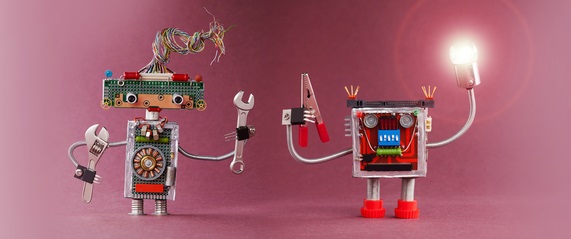In the not-too-distant future there is a real possibility that the demand for human workers in traditional roles may decline substantially due to the increased use of robots and automation. What are the redundant humans to do?
The idea of a guaranteed basic income (akin to unemployment benefit but payable to all citizens whether they are working or not) has been mooted as a potential resolution. The concept is not new – it has been proposed in many different guises in various countries over the years. It was seen as a way of eliminating poverty and/or of massaging income inequality but the idea never really gained much traction in practice. Nowadays there is a real concern that artificial intelligence could spell doom for the human worker. Traditional human inputs will be no longer required and progress on devising alternative human participation in the workforce will not happen quickly enough to prevent mass unemployment.
For those who consider all of this a little far-fetched it is true that it will not have an immediate impact. But, as with all things technological, it is certain to have a profound effect and will most likely happen much sooner than we think. Which industries are well-positioned to adapt to these changes? – they are surely not all in the leisure area! How will humans adjust? No point in showing initiative or drive – the universal basic income will apply to all. How will the global economy cope? Will inflation finally be tamed? Will a decent standard of living become affordable again without the need for significant sacrifices?
It is always difficult for us to imagine the future with any accuracy. The wheel, fire, paper, steam engine and electricity all had mind-blowing impacts on human behaviour – none of them were predicted. In more recent times the airplane, penicillin, nuclear fusion and telecommunications have transformed our modern life. What will the next generation of advances bring?
The current economic model of employer/employee/work/wages could just as easily break down to no employer/no employee/no work/ no wages, if a universal basic income was in place. But where would the money come from? There would be a significant financial burden on central government and that seems unfair. The money, although paid by the state, would surely come from the very companies that benefit from the reduction in human workers. This would have the effect of linking each new robotic action to additional costs associated with subsidising the guaranteed basic income. It would have the fundamental impact of seeing companies pay additional taxes and duties in addition to their current costs.
It’s all pie in the sky until it becomes reality. Viewed from this distance the concept of mass unemployment seems to conjure up disruptive forces and disincentives leading to revolt and rebellion. But could a more egalitarian society diffuse such emotions? Given that all economies are constructed on the basis of allocations of wealth would it be so different to accept the notion of guaranteed, universal basic income?

